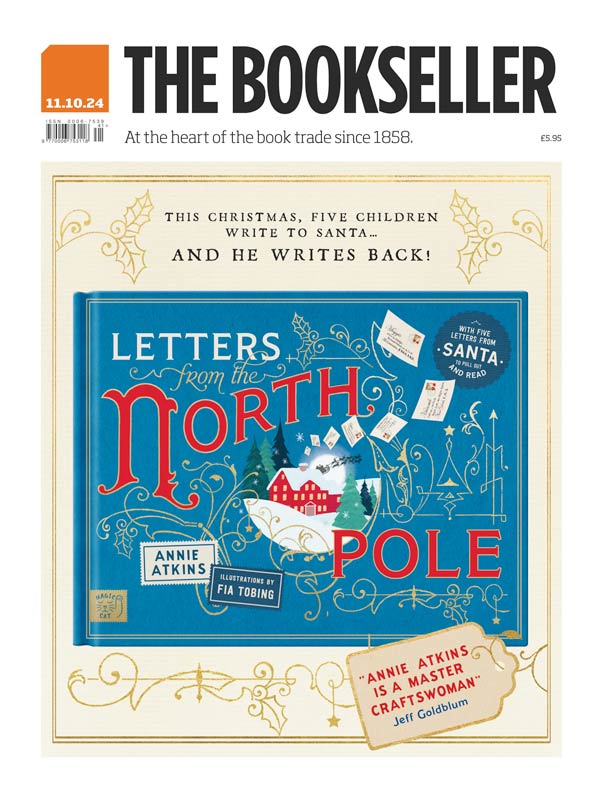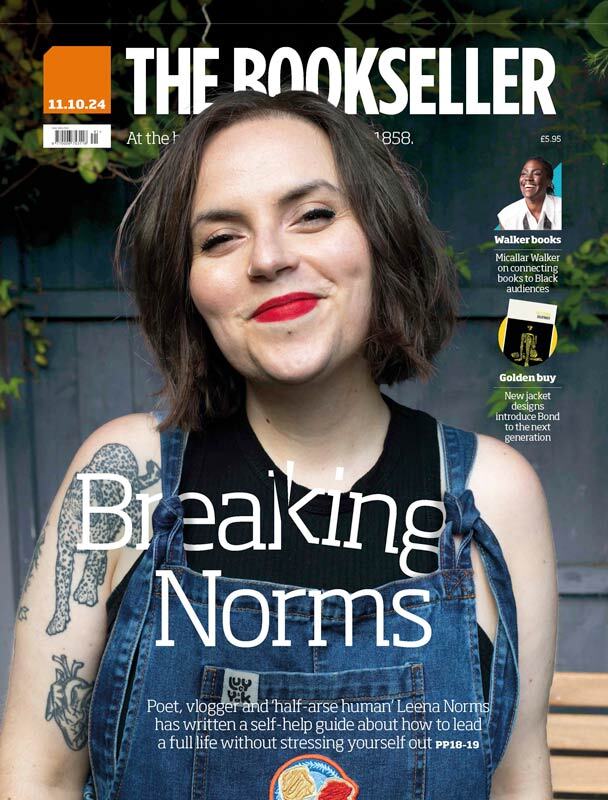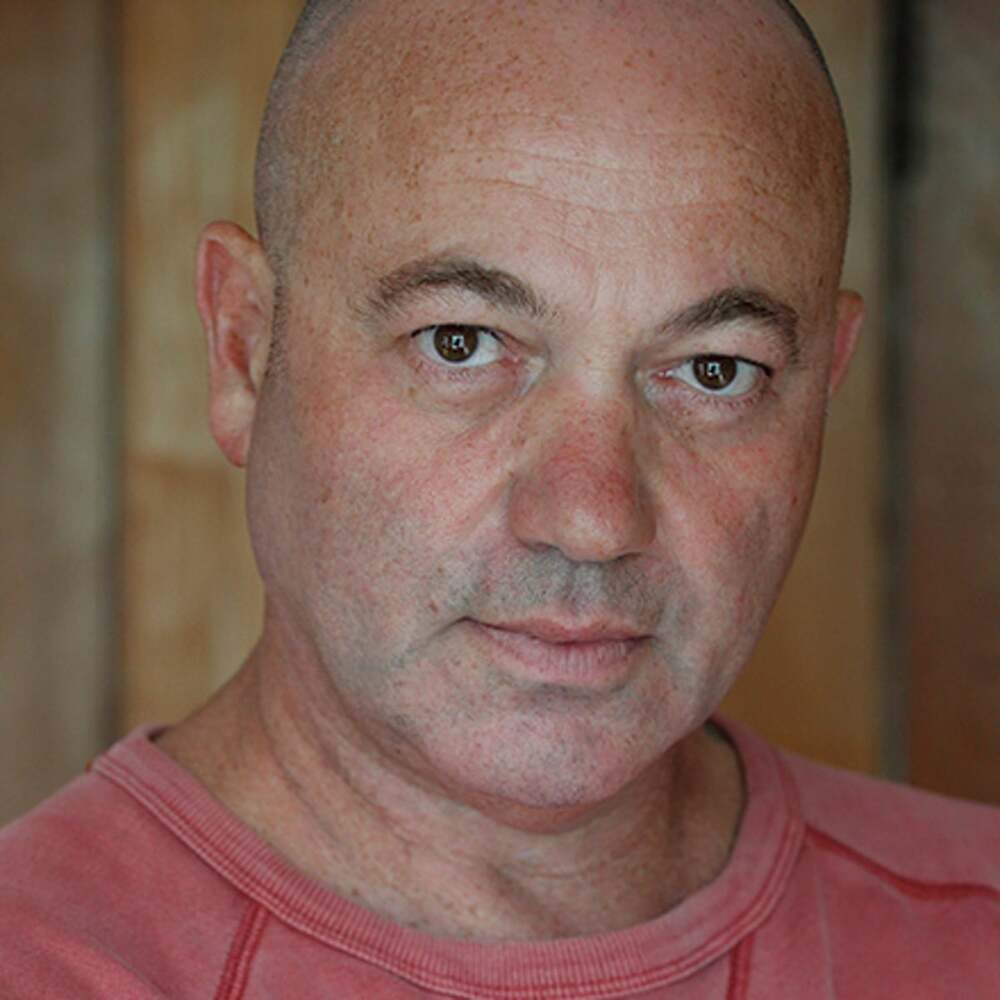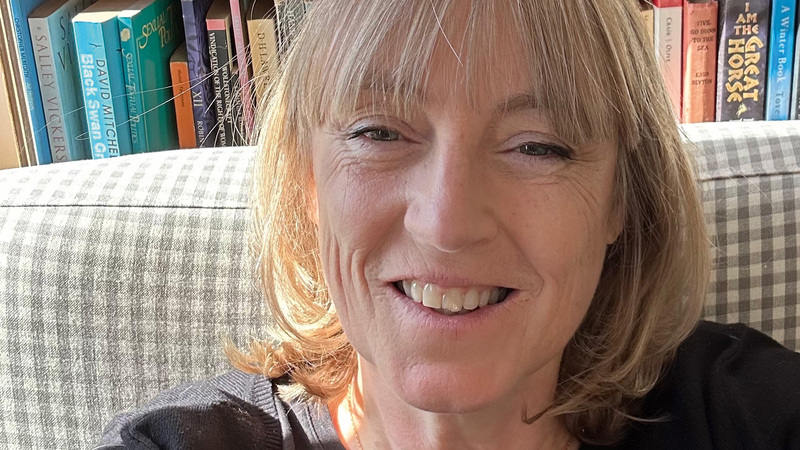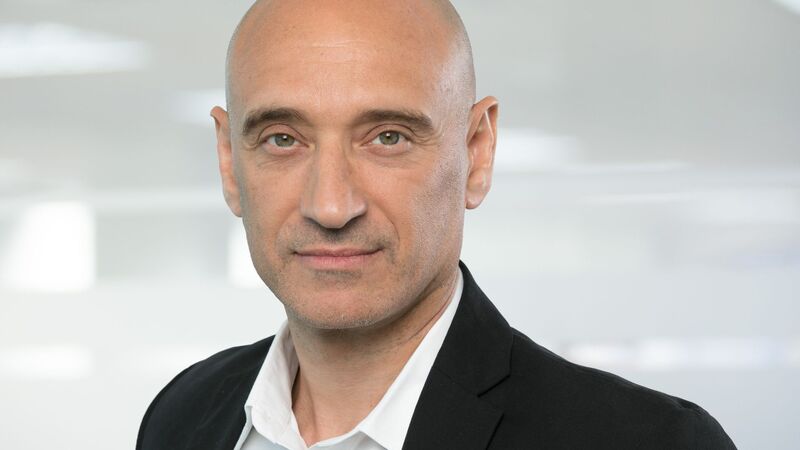You are viewing your 1 free article this month. Login to read more articles.
Howard Cunnell | 'I wanted to write the stories that were about love'

Caroline Sanderson is a non-fiction writer, editor and books journalist. Her books include a travel narrative, A Rambling Fancy: in the F ...more
 Caroline Sanderson
Caroline SandersonCaroline Sanderson is a non-fiction writer, editor and books journalist. Her books include a travel narrative, A Rambling Fancy: in the F ...more
You may know “Fathers and Sons” as a novel by Ivan Turgenev, or a short story by Ernest Hemingway (for more about Hemingway, read on). Soon you may also know it as the title of a life force of a memoir by Howard Cunnell. “It was the only possible title,” says its author.
Cunnell’s Fathers & Sons (Picador, February) centres on the story of one man and his blended family, but it is also, in its concise 200 pages, about so many other things besides: masculinity and fatherhood; gender and identity; reading and writing; and the power of the written word to sustain us in dark times. Above all, it’s about— in a phrase Cunnell borrows from a poem called “Axe Handles” by Gary Snyder—the “shaping axe” of human love.
Though the fathers and sons of the title take centre stage during our interview, it is of Cunnell’s mother that we talk first. I discover that she died a few weeks ago, and this still-raw bereavement lends a particular poignancy to the book’s imminent publication. Gillian Cunnell always encouraged her son to read, and also to write, buying him his first typewriter. “Everything I love comes from her: the beach, being outside, reading. We didn’t have a great deal, she was a single parent and very young, and there wasn’t a lot of money but there were always books on the shelves”, he tells me. A seminal childhood book was The Outsiders by S E Hinton, published in 1967. “Its influence on me as a teenager was immense, because it was the first time that I’d read anything where I could recognise the people in the story: a family of boys who had no father.”
Early years
Episodic in structure, Fathers & Sons moves back and forth from the early 1970s to 2015, as Cunnell relates scenes from his childhood, adolescence and young adult years, alongside his more recent experiences as a parent. He grew up in Eastbourne with his mother and older brother. The father he never knew (his parents parted before he was born) was conspicuous by his absence to such an extent that as a child, Cunnell struggled with his sense of self. This led to years of turbulence in adulthood too: characterised by drinking, belligerence and destructive relationships. He found some solace in an outdoor life (in swimming and scuba diving) and also in reading, notably the work of Hemingway, Raymond Carver, Jack Kerouac and Walt Whitman. “In the absence of a father’s voice, I have always looked towards certain writers to give me guidance,” he reflects.
Then, in 1994, Cunnell meets Araba, the woman who will become his wife. “The tiles on the floor came flying up in the air because she was so gorgeous. That kind of magical realism was how it felt,” he says of this coup de foudre moment. When the two get together, Araba is already mother to one daughter, and pregnant with another, Jay. Soon they have a daughter together, Rose, and Cunnell has a family. This profound and rapid change in his life is initially too much for his fragile sense of self-worth to bear. The monster inside him tells him he’ll be “a shit dad, like I was a shit kid and a shit man”. Araba throws him out. “She’s loving me, and we’ve got these children, and still I’m walking around in this constant black rage.” Cunnell runs away to Mexico. Months later he returns and, surrounded by love once again, focuses on believing that he can be a father. “Now we work towards a gentler love,” he writes.
Identity politics
Fathers & Sons is also the story of Jay, Cunnell’s dearly beloved stepchild. She is a tomboy who needs to run: light of foot and “full of grace”. The book begins with a quietly beautiful scene in which Cunnell brushes seven-year-old Jay’s hair, teasing out the knots. “It’s now, her young heart beating hard against my hand, that Jay, beyond everything else she is, feels most strongly like a gift.” But a few years later, at the age of 14, Jay is in crisis at the knowledge that she is a teenage boy trapped in a teenage girl’s body. Cunnell relates Jay’s brave transgender journey with a depth of understanding that is breathtaking.
While Fathers & Sons is more than qualified to join the ranks of other recent transgender memoirs, Cunnell is quick to dismiss it as a book specifically about that particular “issue”. “I’m not attempting to say anything definitive about the transgender experience or even to suggest to other parents how to cope with such a situation because it’s a very individual thing.” Nevertheless, there is a clear kinship between the struggles of both father and son to find a sense of identity in a world in which—to borrow a wise phrase from Cunnell’s daughter Rose—“gender is performative”.
Cunnell pays warm tribute to Picador publisher Paul Baggaley for “letting me write the book I wanted to write”. Fathers & Sons came out of a novel he had worked on for the best part of three years which “had collapsed into itself and wasn’t going anywhere. But I was metaphorising a lot of the stuff I write about in this book and I told Paul that I thought I wanted to write a memoir.” Soon afterwards, Cunnell went scuba-diving in Malta for his 50th birthday. “On the last dive, as I was coming to the surface, some of the book was coming to me. Suddenly I was really energised. I wrote the majority of it very quickly because it was there already. I felt a sense of urgency about it. I’ve never had that experience before, and I don’t expect to have it again”.
I wrote the majority of it very quickly because it was there already. I felt a sense of urgency about it. I’ve never had that experience before, and I don’t expect to have it again
Spare room
Much of the impact of Fathers & Sons lies in its brevity and its essential mutedness. “It was important to me that the book was as spare as it is. I wanted the reader to have a lot of space to engage with it. And the best way to do that was not to say too much. One of the things I was trying to do was write a 200-page book which by the time you’d finished it, felt like a 600-page book because it told so many different stories.” It’s not difficult to discern the influence of Cunnell’s literary heroes on his writing style, most notably Hemingway. “When I was a young man, he absolutely dominated my thinking about how a writer should conduct themselves; and what was possible. ‘Don’t talk about the emotion that you’re trying to transmit to the reader,’ he said, ‘demonstrate it in the action that you write.’ That was a key thing for me.”
There has been a recent raft of remarkable memoirs that comb through the fallout from terrible tragedies and the gravest of illnesses. Fathers & Sons may, on the face of it, be about troubles more “ordinary”, but it has an extraordinary power to draw the reader in and encourage them to reflect on their own living and loving. This synergetic quality is one that many great memoirs share. And it chimes with Cunnell’s own vision for his book. “I see it as a conversation with the reader, to which they can bring their own experience of being in a relationship, of being part of a family, of being in love. It could have been 600 pages of misery, which would have been very popular with some people. But I didn’t want to write that. I wanted to write the stories that were about love.”

